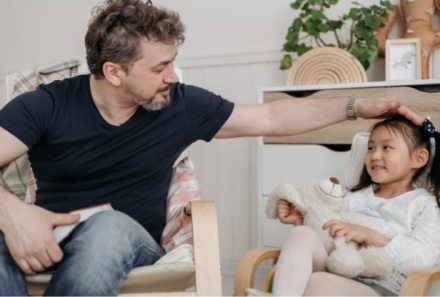Understanding Adopted Child Syndrome: A Parent’s Guide

Do you remember your own struggles to fit in during your formative years?
Growing up. Puberty. School cliques.
None of it is easy to navigate, and it’s even harder for many adopted children. The struggles to find and understand oneself as an adopted child are often understood under the umbrella of Adopted Child Syndrome.
Don’t worry, it’s perfectly normal.
The best thing you can do is to try and understand, so keep reading.
Adopted Child Syndrome: Why It Occurs
Adopted Child Syndrome (ACS) refers to various behaviors attributed to the struggles of adoption. Some psychologists use it to explain an adopted child playing truant, stealing, misbehaving, or otherwise failing to integrate.
Adopting a child is hard, and it’s harder still for the adopted child.
It’s a question of self-identity, culture, roots, and of origin. It’s nature and nurture battling it out for dominance.
And it all occurs during a child’s formative years, a tentative period where the child is struggling to understand the world as much as they are themselves. The signs of ACS vary from child to child and home to home, but one thing is certain:
It’s often misunderstood. It takes compassion and an informed approach to address the causes.
What It’s Like for the Child
Most of us can’t even imagine what it’s like to walk in the shoes of an adopted child.
Adopted children want to understand where they come from. Some secretly yearn to meet their biological parents.
ACS is a complex web of emotions; a sense of loss and longing mixed with gratitude and acceptance. Don’t expect your adopted child to know what to do with this conflicting cluster of feelings.
Instead, learn to recognize common behaviors (below), and learn to listen.
Navigating Adopted Child Syndrome
For parents adopting a child, the journey is as challenging as it is rewarding.
There are many behaviors associated with ACS. All of them indicate some sort of mental health issue and, as noted below, they all require a delicate hand. Some of the most common signs of ACS include:
- Emotional withdrawal
- Emotional instability
- Attachment difficulties
- Growing frustrated
- Suffering in silence
- Not taking you seriously
- Having difficulty fitting in
Creating a Safe Space
It’s your job to ensure your child feels comfortable expressing themselves on their own time.
Above all, it’s important to do two things: To listen, and to give space.
Even non-adopted children require their own space to process things, and by learning to listen without judgment, many parents find their children will approach them when the time is ready.
Remember, your adopted child will acclimate to new surroundings over time. It’s unlikely that they’ll feel fully integrated – a part of the family – overnight.
Take it slow. One day at a time. Provide as much support as you can, and in time, you will reap the rewards.
An Ongoing Journey
Adopted Child Syndrome is an uphill battle, and it’s one you need to be prepared for as a parent.
Learning to recognize the signs in the early days will help you out. Remember, there’s a wide network of support available. You just need to ask for help.
At Heart of Adoptions Inc., we provide support to pregnant mothers and help connect foster children with loving families. Contact us for a free initial consultation today.






